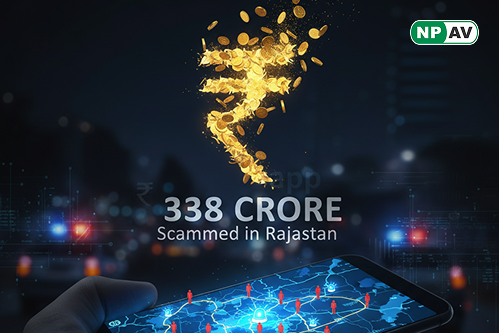Financial fraud
-
Posted: December 04, 2025Views: 400Read moreIndia recorded 22.68 lakh cybercrime cases in 2024, with losses of ₹22,845 crore. Discover govt actions like SIM blocks and fraud prevention tools.
-
Read moreKerala hotel booking scams, tourist fraud alerts, fake hotel staff impersonation, QR code payment traps, advance payment demands, KTMS warnings, travel safety tips, scam verification, official hotel contacts, digital security awareness
-
Read moreWhatsApp scam dupes Pune man of ₹22 lakh—learn about 'Digital Arrest' tactics, risks to seniors, and how to avoid and report fraud.
-
Posted: November 05, 2025Views: 92Read moreBEC scam hits Noida mobile firm for ₹78 lakh—learn the tactics, investigation, and tips to avoid corporate email fraud.
-
Posted: October 31, 2025Views: 93Read moreLearn how SIM Swap Fraud hijacks your number for banking theft—spot signs, follow prevention tips, and secure your digital identity today.
-
Read moreRajasthan cyber fraudsters use Chinese app to evade police—learn about the scams, tactics, and tips to protect against these evolving threats.
-
Read moreZero-day in Galaxy S25 allows remote camera activation and tracking—learn about the Pwn2Own exploit, risks, and tips to secure your Samsung device with updates.
-
Read moreMaharashtra cyber scam defrauds 72-year-old of ₹58 crore via fake TRAI calls—learn about psychological manipulation, arrests, and tips to verify authorities and report frauds quickly.
-
Posted: October 18, 2025Views: 68Read moreWaterPlum's Cluster B deploys OtterCandy via ClickFake campaigns—learn about its theft features, v2 updates, and defenses like monitoring Node.js to protect against credential and crypto theft.
-
Read more2017 emails reveal IndusInd executives ignored Forex hedging red flags, leading to potential profit manipulation—RBI probes ongoing; experts urge stronger banking audits and governance to safeguard against accounting scandals.















